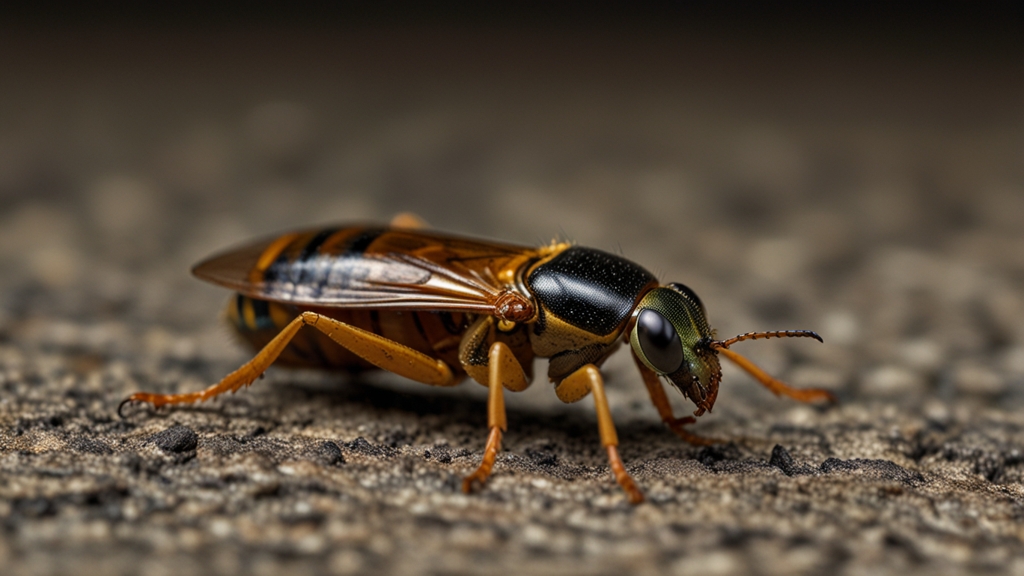Unlikely Trivia Facts That Will Leave You in Awe
We live in a world brimming with fascinating facts, and some are so unlikely they can leave you genuinely in awe. These nuggets of information span various fields, including science, history, geography, and culture. Here are some mind-boggling trivia that you probably didn't know, but undoubtedly will find intriguing.
The Bermuda Triangle Has Competition
The Bermuda Triangle is often cited as a mysterious region where ships and planes disappear without a trace. However, it has an equally enigmatic counterpart: the "Dragon’s Triangle" near Japan. This area is famed for similar stories of vanishing vessels and inexplicable phenomena.
"Located in the Pacific Ocean, the Dragon's Triangle holds legends of lost civilizations and magnetic anomalies, making it as mystifying as its Atlantic cousin."
Bananas Are Berries, But Strawberries Aren't
When you see a banana or a strawberry, they seem to fit neatly into the "fruit" category without much thought. However, from a botanical standpoint, bananas are indeed classified as berries, while strawberries are not. In botanical terms, a berry is a fruit produced from the ovary of a single flower, and bananas fit this definition. Strawberries, on the other hand, grow from a flower with multiple ovaries, placing them in a different category.
Wombats Have Cube-Shaped Poop
Among the varied wonders of the animal kingdom, wombats possess one of the most peculiar traits: their cube-shaped poop. This unique feature has baffled scientists for years, but research suggests that the cubes are formed within the wombat's intestine, likely due to a combination of its diet and digestive process. This distinctive shape prevents the feces from rolling away, which might be beneficial for marking territory.
"Wombat poop is not just a quirky tidbit; it's a marvel of natural engineering that continues to intrigue researchers."
Venus Is the Hottest Planet
It may come as a surprise, but Venus, not Mercury, is the hottest planet in our solar system. Despite being farther from the Sun, Venus boasts scorching temperatures that can reach up to 900 degrees Fahrenheit (475 degrees Celsius). This extreme heat is due to its dense atmosphere, composed mainly of carbon dioxide, which causes an intense greenhouse effect.
A Day on Venus Is Longer Than Its Year
Adding another layer to the fascinating nature of Venus, a single day on this planet (one full rotation on its axis) lasts longer than a year (one complete orbit around the Sun). This paradoxical fact is due to Venus's incredibly slow rotation, taking approximately 243 Earth days to spin once, compared to the 225 Earth days it takes to orbit the Sun.
Honey Never Spoils
Honey's status as the only food with an eternal shelf life is a testament to its unique composition. Archeologists have discovered pots of honey in ancient Egyptian tombs that are still perfectly edible. This longevity is due to honey's low moisture content and acidic pH, which create an inhospitable environment for bacteria and microorganisms.
"The enduring nature of honey truly defies the ravages of time, making it as useful today as it was thousands of years ago."
Octopuses Have Three Hearts
While humans make do with one heart, octopuses have evolved with a trio. Two of these hearts pump blood to the gills, where it picks up oxygen, while the third pumps it to the rest of the body. This unique circulatory system supports their active predatory lifestyle and ensures their complex brain and body receive enough oxygenated blood.
Conclusion
The world is full of astonishing facts that challenge our understanding and ignite our curiosity. From the enigmatic triangles of the oceans to the extraordinary traits of animals and plants, these unlikely trivia facts highlight the diversity and wonder of our world. Whether it's the cube-shaped poop of wombats or the eternal shelf life of honey, these facts serve as a reminder of nature's incredible inventiveness and the endless opportunities for discovery.










